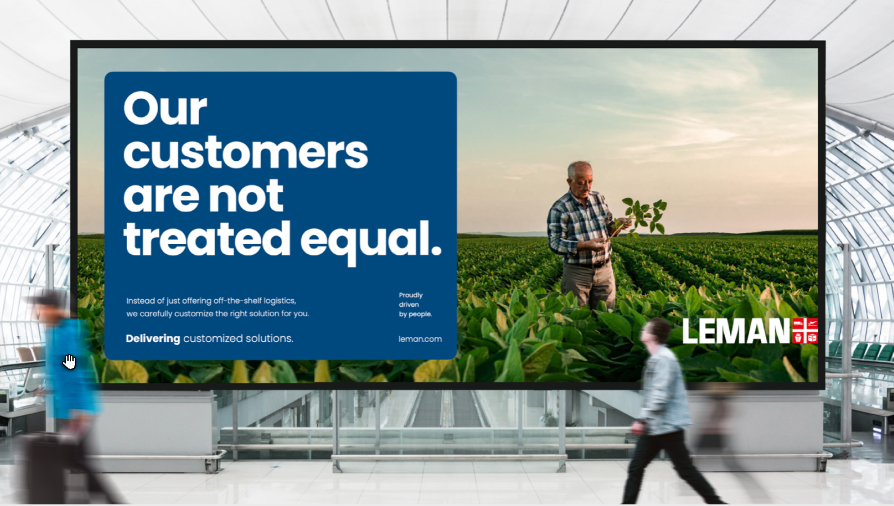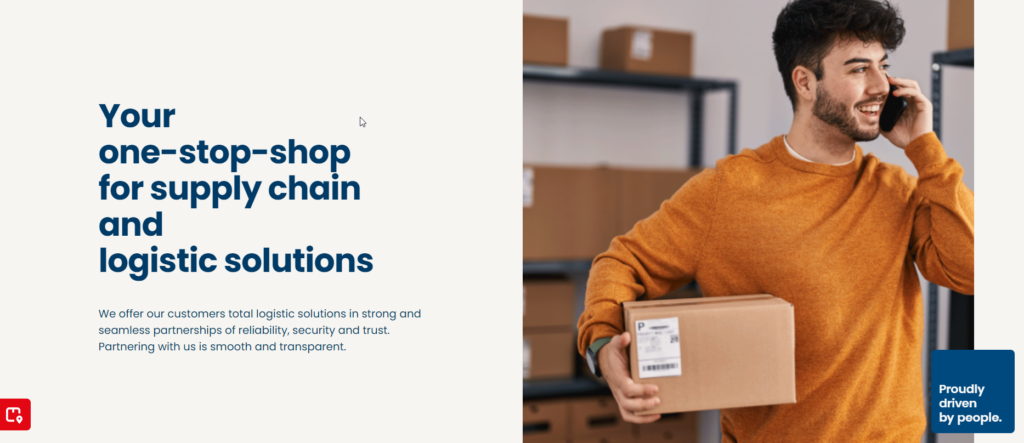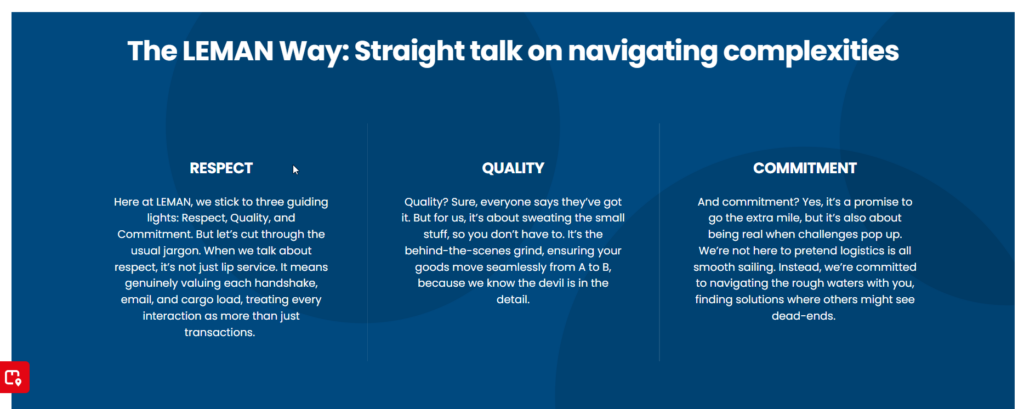Tone of Voice
Why a tone of voice?
3 keywords
How we use the three keywords
Rules
Exampels

Why a Tone of Voice is important to us
A TONE OF VOICE consists of several guidelines and rules
regarding the written language used in our communication.
It is impossible for all of us to use the exact same tonality. But the following guidelines ensure that we have some common ground, some do’s and dont’s – and in the end, a more aligned way of writing.
3 Keywords define our Tone of Voice
Clever
Closer
Candid

Clever – We offer smart,
thoughtful
solutions.
Subtle humor
Use subtle humor, wordplay and self irony (when appropriate).
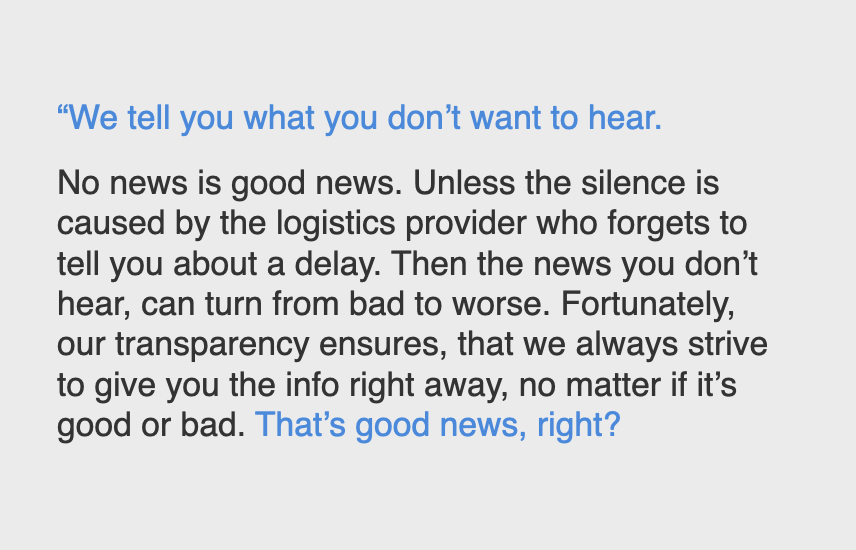
Complex ideas
Explain complex ideas in simple language.
The copy is really plain and simple, from start to finish.
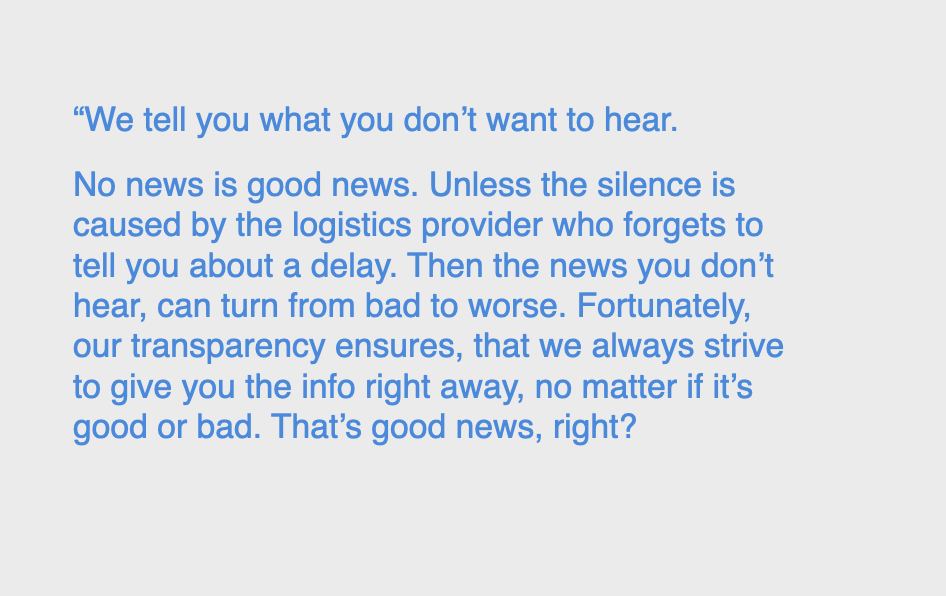
Ownership
We take ownership of what we do – both successes and challenges.
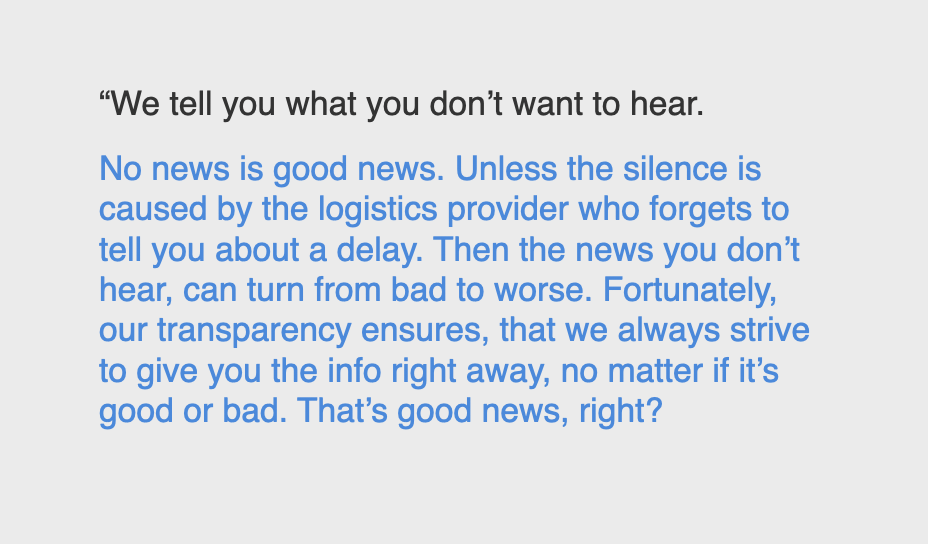
Closer – How do
we sound global,
yet close to
costumers and colleagues.
Casual
Speak in a casual way, spoken words language – as if talking to an acquaintance.
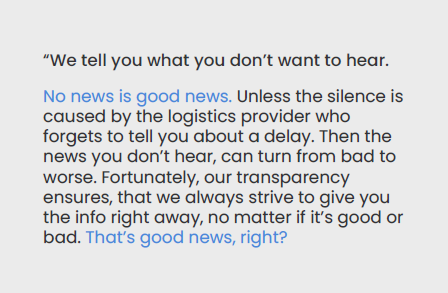
We, us and you
Use “we”, “us”, “our”, and “you”, “your”.
This makes it far more personal than referring to ourselves and our customers in third person.
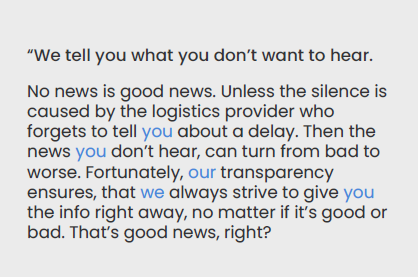
In the customers shoes
We put ourselves in the customers shoes (what’s in it for the customers?).
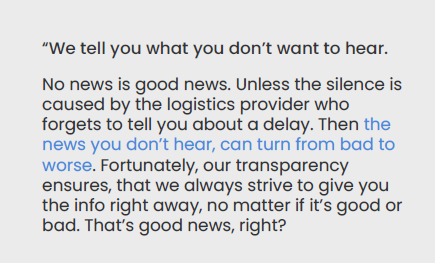
Candid- How do we sound honest and keep things transparent?
Straight to the point
We say it as it is and get straight to the point.
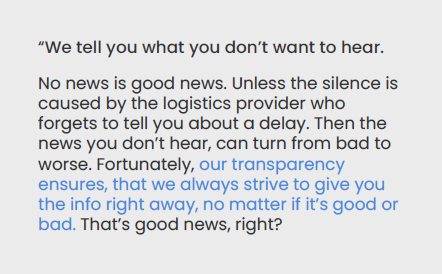
No exaggerations
We do not exaggerate or make promises we can’t keep: We “strive” to = We do our best.
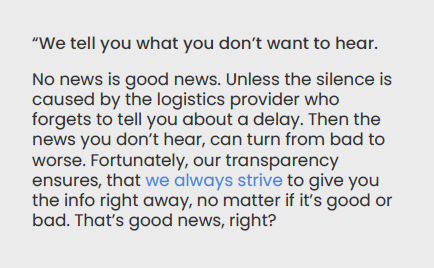
Ownership
We take ownership of what we do – both successes and challenges.
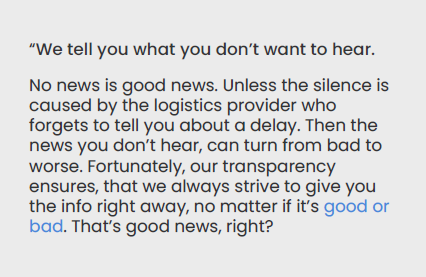

Grammatical rules
- We use British English
- We never use “The LEMAN family”. Use “we”, “us”, our and “you”, “your”. We are an organisation with a strong culture, but we are not a family.
- We never use “employees”. Use “collogues” or “people” instead.
How we talk about people
- We use simple language, no matter how complex the subject is.
- We don’t use overly technical words.
- We use subtle humor, wordplay and self irony (when appropriate).
- We speak in a casual way – as if talking to an acquaintance (“spoken word” language, short sentences, start sentences with “And”, “But” etc.).
- We say it as it is and get straight to the point.
- We don’t exaggerate or make promises we can’t keep.
- We show commitment and passion when we communicate.
- We don’t speak negatively about competitors.


What we do
- We aren’t “just” a logistics provider, we are a logistics partner.
- We see all offices as equal. This is why we don’t use the term “headquarter”.
- We don’t have merely “products”. We have solutions and services.
- We don’t have “customers”, but “partners”.
- We put ourselves in the customers’ shoes.
- We take ownership of both successes and challenges.
How we use our ethos
We think before we communicate, and we put ourselves in the customers’ shoes.
We don’t exaggerate or make promises we can’t keep.
We take ownership of both successes and challenges.
Examples
